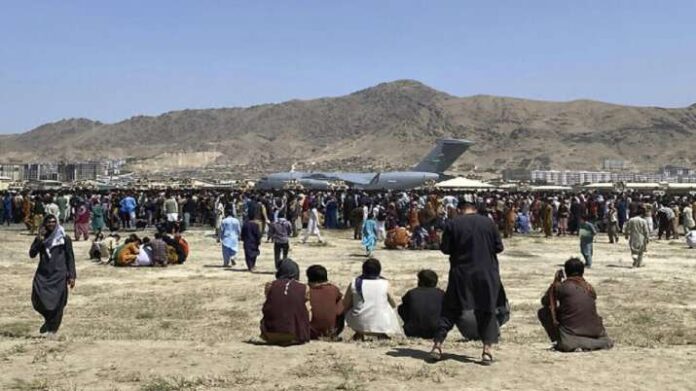
| Translate This News In |
|---|
Millions of Afghans have been internally displaced, and many have fled the nation since the Taliban gained control of Afghanistan in mid-August, resulting in a rising humanitarian crisis.
Due to the uncertain and chaotic economic and political circumstances in Daikondi, Panjshir, Helmand, and other provinces, Khaama Press claimed that scores of local households have left their houses and cattle behind.
The Taliban’s takeover has had a significant impact on the commercial sector, as the vast majority of local businesses and international organisations have remained closed since the takeover. This means that the country is in a severe economic state, with no international support or connectivity, putting regular people in an exceedingly difficult position.
Similarly, due to the lack of commerce and regional connectivity, the public sector has been somewhat immobilised. Several factors cause Afghan traders to have unnecessarily long delays in getting their agricultural products to regional marketplaces. Similarly, Khaama Press claimed that importing essential necessities and food has become harder, leading in price increases during these difficult times.
Since the international world stopped delivering funds, Afghanistan’s frail and donation-based economy has already collapsed, and the new government has yet to win international credibility and support. Due to the tremendous uncertainties, many privately-owned businesses and companies remain closed and have yet to reopen.
The war is finished, and the security situation has improved, yet security by itself is insufficient to help the economy prosper. According to Khaama Press, international connection, regional trade, and foreign investment are essential components of any economy, but they are currently lacking in Afghanistan.
People have been overcome by hopelessness, uncertainty, and despair as they anticipate the worst-case scenarios, such as famine, which has already occurred owing to unemployment, internal displacement, COVID-19, and drought.
According to Khaama Press, neighbouring countries such as Iran, Pakistan, and Tajikistan have blocked their land borders to prevent a new influx of Afghan migrants. Unemployment, famine, migration, and displacement are important issues confronting Afghans in the current situation, which has ushered in a new humanitarian crisis.
According to Khaama Press, it appears that the Kabul regime will be unable to find comprehensive solutions to the current problems unless regional and international countries extend their helping hands to the Afghan people who have been suffering from severe poverty, migration, and instability for nearly half a century.

















